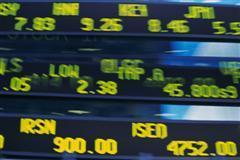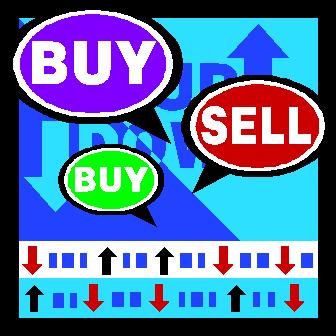| Home | About | Archives | RSS Feed |

Independent Investor: Emerging Markets — Times Are Changing
 While the investing world is distracted by the U.S. debt ceiling crisis and the on-going drama of Italy and Greece, I've noticed that a small but increasing stream of money is finding its way back into some emerging markets.
While the investing world is distracted by the U.S. debt ceiling crisis and the on-going drama of Italy and Greece, I've noticed that a small but increasing stream of money is finding its way back into some emerging markets.
Last year, I advised investors to lighten up on emerging markets. That proved to be the right call. The Chinese market is now below the levels last seen in late 2009. India and Brazil have lagged world markets as has Russia. But usually you want to begin to invest in these markets before their stock markets turn. Today, I think it may be the right time to start nibbling in the area. Here's why.
The increase in commodity prices was a major negative for many emerging markets, notably China, India and Brazil. Their factories are voracious users of energy, such as oil and coal and a host of base metals and agricultural food stuff. When prices of these inputs go up, combined with a fast growing economy, inflation follows quickly.
Many emerging market governments have had to contend with this problem by tightening credit and raising interest rates over the last two years. When commodity prices come down, as they have done over the past four months, it relieves some of the inflationary pressure and allows governments to loosen monetary policy a bit. That reversal of fortunes is happening at the moment.
China, the big dog of emerging markets, has raised interest rates five times this year. Last week, they raised them again but indicated that it may well be the last hike this year. The Chinese central bank has not changed its rigid stance toward fighting inflation quite yet, but it expects to see some lessening in the inflation rate this month. Investors have worried that all this the belt-tightening in China (and other countries) would lead to a "hard landing" for the economy, but the country reported steady growth for the second quarter coming in at 9.5 percent, only slightly lower than the first quarter's 9.7 percent growth rate.
But things have changed in the investing landscape among emerging markets. Gone are the days when one could simply buy a fund that is exposed to all emerging markets and hope to prosper. Brazil and other Latin countries, for example, are tied to the prices of the commodities they produce, so what may be good for China, may be bad for Brazil.
India, like China, has an inflation problem but seems to have a better handle on controlling inflation and imports more natural resources than it exports. Some other Southeast Asian countries such as Vietnam, Indonesia, Malaysia, Singapore and Taiwan have their own set of economic variables, although many of them still depend on China's continued growth for their own prosperity.
Korea, on the other hand, may not even be an emerging market any longer in my opinion. Latin American countries like Mexico, Peru, Chile and Argentina join Brazil in combating high inflation brought on by the very thing that is responsible for their growth, natural resources.
About the best that can be said is that as emerging markets develop, each country's particular set of circumstances can provide both an opportunity and a challenge. Gone are the easy-money days of simply buying them all and watching your portfolio go up and up as it had in the period of 2002-2007. Now it takes some homework and a bit of luck.
Bill Schmick is an independent investor with Berkshire Money Management. (See "About" for more information.) None of the information presented in any of these articles is intended to be and should not be construed as an endorsement of BMM or a solicitation to become a client of BMM. The reader should not assume that any strategies, or specific investments discussed are employed, bought, sold or held by BMM. Direct your inquiries to Bill at (toll free) or e-mail him at wschmick@fairpoint.net . Visit www.afewdollarsmore.com for more of Bill's insights.
| Tags: emerging markets, commodities, inflation |
@theMarket: Stair-Stepping Higher
 The best rallies are those that move up, take a breather and then move up again. That way markets do not get extended, the gains are fairly predictable, as are the pullbacks. It appears that is the kind of market we are in at present.
The best rallies are those that move up, take a breather and then move up again. That way markets do not get extended, the gains are fairly predictable, as are the pullbacks. It appears that is the kind of market we are in at present.
The S&P 500 Index reached a low of 1,249 exactly one month ago. It then soared 7.2 percent to 1,339 in the next 23 days. We began this pullback a week ago and so far have given back less than 2 percent of those gains. I would expect a bit more time and possibly downside before resuming our march toward 1,400 on the S&P.
If you are looking for excuses (as so many of us do) to explain the short-term gyrations in the market there are plenty of culprits. If you are a Republican, it's all about the runaway deficit and the opposition's unwillingness/inability to tackle spending and raise taxes. Democrats will argue it's the fault of the GOP and the tea party that narrowly missed shutting down the government by tacking on superfluous riders to the deal. I expect increased rhetoric and market volatility as the debate on the debt ceiling intensifies, so be prepared.
But all of that is simply headline news. The real questions that are making the rounds of trading floors and hedge fund offices are these: At what point does "non-core" inflation, (energy and food, for example) start to impact corporate profits? Are we already seeing some of that risk this quarter as companies voice their concerns about profit margins in the future?
When will the widening gap between America's haves and have-nots reach a boiling point? Over 70 percent of the population is caught in a terrible climate of stagflation while the top 30 percent get richer and richer. Higher commodity prices will eventually force producers to pass on price increases to consumers. Will these consumers demand higher wages in order to stay afloat? Will corporations respond by raising worker's income or will they hold the line? If they hold the line, will that mean consumer spending retreats and the economy slows? Either way, corporate profits will suffer.
Overseas, Spain's real estate losses are massive and at some point will come to the forefront. How will Europe and the world meet that challenge? Spain, unlike Greece, Portugal and Ireland, is a big economy and problems there would have a severe impact on other economies.
Will China be able to continue its role as the world's economic locomotive? The government is struggling to engineer a "soft landing" as it attempts to control/reduce inflation while maintaining a high growth rate. At best, this is a difficult task and if they over tighten, causing their economy to falter, what will that do to global economic growth?
At the center of this debate is QE 2. There is an extremely high correlation between the rise in commodity prices, the stock market and the Federal Reserve's open market purchases of securities. The ripple effect of QE 2 has spread all over the world and the above questions center on what happens with the end of QE2 in June.
The Fed is flooding the economy with money and that money is sitting in bank vaults and on corporate balance sheets. So there is plenty of money to hire workers and raise wages to pay for those higher prices brought on by sky-rocketing commodity prices. Of course, what I am describing is the beginning of an inflationary cycle that, if left unchecked, could lead to hyper-inflation.
Given that no one knows how this story will turn out, one can forgive the two steps forward, one step back volatility in the markets. Gold and silver continue to rocket higher since all we can be sure of right now is that the Fed will continue to pump money into the economy until June. It is also why I believe the stock market, regardless of these short-term pullbacks, is heading higher for now.
Bill Schmick is an independent investor with Berkshire Money Management. (See "About" for more information.) None of the information presented in any of these articles is intended to be and should not be construed as an endorsement of BMM or a solicitation to become a client of BMM. The reader should not assume that any strategies, or specific investments discussed are employed, bought, sold or held by BMM. Direct your inquiries to Bill at (toll free) or e-mail him at wschmick@fairpoint.net. Visit www.afewdollarsmore.com for more of Bill's insights.
| Tags: markets, commodities, inflation, Congress |
@theMarket: Stop Worrying About Inflation
 Here is a sampling of comments I received this week from Berkshire clients:
Here is a sampling of comments I received this week from Berkshire clients:
"Just wait until higher prices start hiking the inflation rate."
"Interest rates are rising because of inflation."
"Look at the government deficit disaster, the only thing we can do is inflate our way out of debt."
It is as if everyone in the United States is absolutely convinced that we are on the verge of hyperinflation. And yet the inflation rate remains below the Federal Reserve's target of what is considered a healthy rate of inflation. It's time I cut through the hyperbole and set things straight for you and I.
I believe that until the unemployment rate drops substantially, inflation in the U.S. will be contained to no more than 2 or 3 percent.
In the meantime, in order for the housing market, the banking sector, the nation's unemployed and the economy overall to improve, we need to spend more money and ignore the deficit for now. The Fed has it right. Drown the system with dollars until even the most recalcitrant lender has no choice but to lend despite the perceived risk.
Commodity prices are rising because of 1) terrible weather and 2) economic recovery worldwide. Those price increases may or may not be inflationary depending upon where you live and do business. Additional demand for wallboard by a local builder, for example, is a good thing because there is a lot of excess capacity right now in the U.S. The same is not true for Chinese or Indian builders, who are populating their country's skylines with thousands of new buildings. For them, higher prices for every additional nail, two-by-four or steel girder fuel their already high inflation rates.
Quantitative easing has been judged a failure by a host of economists and strategists because it has caused interest rates to rise and asset prices to increase, but those are positive developments in my opinion. The price rise in assets (capital goods) is why big takeover deals are back. The impetus behind "merger mania" is simple: investors' expectations have changed drastically from last year's "double dip" mentality. Both market participants and corporations now believe that the return on investments over the coming years will be far higher than expected so assets are worth more now; thus the price increase. That's why investors are loving the increasing stream of takeovers and mergers. These asset price increases will lead to a surge in economic activity and ultimately increases in employment.
The rise in interest rates does not indicate inflation fears. They are simply reflecting the new reality that real returns on assets are increasing. In order to stay competitive, the bond market must offer higher rates. So don't be spooked by higher rates. Their increase is a natural, predictable and welcome development in any country's economic recovery. Don't let the talking heads tell you otherwise.
Expect the dollar to continue to weaken. Very few countries outside of the U.S. have any form of QE I, II. As a result, other countries' currencies will strengthen against the greenback as their interest rates rise much higher than our own. As I've written before, this is good for our exports because a cheaper dollar increases demand for "Made in America" products. Witness this week's take over of the New York Stock Exchange by the Germans.
As for the stock market, contrary to everyone's expectations of an impending correction, the averages continue to confound to the upside. I say expect a correction, but don't wait for it. We have considerable upside ahead of us. Stay the course and stay invested regardless of any pending pullbacks.
Bill Schmick is an independent investor with Berkshire Money Management. (See "About" for more information.) None of the information presented in any of these articles is intended to be and should not be construed as an endorsement of BMM or a solicitation to become a client of BMM. The reader should not assume that any strategies, or specific investments discussed are employed, bought, sold or held by BMM. Direct your inquiries to Bill at 1-888-232-6072 (toll free) or e-mail him at wschmick@fairpoint.net. Visit www.afewdollarsmore.com for more of Bill's insights.
| Tags: inflation, QE |
@theMarket: Santa Visits Wall Street
 |
As markets close in this holiday-shortened week, the stock market enjoyed its annual Christmas rally with all three averages reaching new highs for the year. It was the best December for the S&P since 1991 and most forecasters believe these gains indicates an even larger move in the first half of next year.
Goldman (or should I say Government) Sachs upped its forecast for the S&P 500 Index to 1,450 for 2011. That is a 16 percent projected gain in the index and, if true, would bring us within 115 points of that average's all time high reached on Oct. 9, 2007.
Adding to the good cheer this week was the news that existing home sales gained 5.6 percent in November, which kindled hopes that the long-awaited recovery in the housing market was at hand. But in my opinion, the real Santa Claus this year came disguised as the Federal Reserve Bank and its chairman, Ben Bernanke.
Back in late August, when the first public statements from the Federal Reserve Bank surfaced on the possibility of a second quantitative easing, the stock market snapped out of its doldrums. I immediately abandoned my cautious stance and both stock and commodity prices started to move higher and have never looked back.
Most market watchers argue that QE II is a failure judging by the results in the bond market. They point to medium and long-term interest rates that have actually increased over the last two months as evidence that QE II has failed. I beg to differ. I believe the Fed's intention was focused solely on keeping short-term interest rates at a historical low level and the steepening of the yield curve (where long rates are higher than short rates) was exactly what they wanted.
In economics class, I learned that a steepening yield curve is synonymous with a growing economy, but as the economy grows so does the threat of inflation. Maybe not at first, but as time progresses, the economy grows stronger and begins to overheat. The specter of rising inflation becomes almost certain. Investors who understand this begin to demand higher yields now from the bond market, especially from those who are selling long-term bonds, say 10 to 30 years out.
Now consider those millions of risk-adverse investors who have put their money into long-term treasury bonds as the result of the recession and financial crisis. They are losing their shirt right now as their investments drop in price on almost a daily basis. Sure, they can sell and buy shorter term government maturities or CDs that promise to yield next to nothing for "an extended period of time" or they can move back into the stock market.
Most investors know that they can get a higher return in the stock market than in the bond market. But until recently, they were too frightened to risk their money in an economy and a stock market that might roll over at any moment. However, thanks to QE II, commodities (an inflation play) and stocks have been roaring back to life on the heels of progressively positive economic data that promises to just get better and better.
So with bond prices down, equity and commodity prices up, and with the Fed on record as wanting the stock market higher and you now have the ingredients guaranteed to entice even the most wary individual back into the stock market. In addition, a steeper higher yield curve is actually good for the traditional players in the bond market - pensions, endowments and insurance companies.
These entities receive constant inflows of new cash because of the nature of their businesses. Investing this money in higher long term rates makes it far easier for them to meet their future obligations. It is also great for the banks that borrow short term and lend long term. With higher long term rates, the Fed is betting that even the banks may be attracted to this higher profit spread and reconsider their present stingy policy toward lending.
So all in all, the Fed has accomplished a great deal with QE II, contrary to popular opinion. And like Santa Claus, no one actually catches the bearer of this gift even if it is sitting there, big as life, under the tree.
Bill Schmick is an independent investor with Berkshire Money Management. (See "About" for more information.) None of the information presented in any of these articles is intended to be and should not be construed as an endorsement of BMM or a solicitation to become a client of BMM. The reader should not assume that any strategies, or specific investments discussed are employed, bought, sold or held by BMM. Direct your inquiries to Bill at 1-888-232-6072 (toll free) or e-mail him at wschmick@fairpoint.net. Visit www.afewdollarsmore.com for more of Bill's insights.
| Tags: rally, QEII, inflation |
@theMarket: The Dog That Wags the Tail
 It is becoming clearer by the day that the U.S. is no longer the Big Dog in financial markets. Ten years ago what happened overseas would have little if any impact on U.S. markets. Today most traders won't make a move without first checking overseas markets.
It is becoming clearer by the day that the U.S. is no longer the Big Dog in financial markets. Ten years ago what happened overseas would have little if any impact on U.S. markets. Today most traders won't make a move without first checking overseas markets.
Last week, I warned that we were in for at least a 5 percent correction and so far we've pulled back 4.4 percent on the S&P 500 Index. I expect continued choppiness through the holiday shortened week with a bias to the downside. There is a possibility that the markets could overshoot and register as much as 6-7 percent drop. I would buy that dip if it occurs.
This correction is a great example of how things have changed. It was countries such as China, Korea and Ireland, not America, which have dictated the turns in our markets.
Over the last two weeks (coinciding with the downturn in U.S. markets), the Chinese government had announced new efforts to slow its nation's growth. China fears that its economy is overheating. Inflation is already running at 10 percent and its citizens are actually hoarding all kinds of stuff from foods to gold to lumps of coal. The real estate market is also out of control and continues to rise each month despite the government's best efforts to slow its ascent. The government has threatened to raise interest rates, tighten monetary policy and take even more draconian methods such as selling commodities on the open market by the shiploads if necessary.
South Korea raised rates twice in two weeks for the same reason. Since April, (when we experienced a serious market pullback) a number of other foreign countries from Australia to Thailand have done the same thing in an effort to reign in their economies.
Markets here have declined in response to these moves because we have now become dependent on these countries for everything from supporting our deficit spending (by buying U.S. Treasury bonds) to the toilet seats in our bathrooms. Many Americans worry that we have traded our economic future for the short-term comforts of cheaper goods, living beyond our means and the "not in my back yard" attitude towards industrial expansion.
"The U.S. is rapidly becoming just another Third World power," laments a 90-year-old retired investor who I make a practice of calling every month or so.
No, he's not a client, but I find his perspective refreshing and his comments pregnant with wisdom and experience. Normally, you don't hear that kind of comment from someone whose family practically built Pittsfield; who was a hero of World War II, and who came home to become one of the county's pillars of industry.
He enumerated all the obvious failings: corrupt politicians, the disappearance of industry, the stratification of classes, our failure to compete educationally and the rampant greed among our captains of industry.
"Take a company I won't name that left this area, shipped off jobs and industry to places like Mexico just to get their share price up," he explained. "It practically wiped out this place, and for what? The price is lower now than when they left."
Hopefully, my friend is proven wrong and this turns out to be just a rough patch that we here in America are going through. I for one have been hoping that the financial crisis of the last two years would be a wake-up call for all of us from the White House on down. So far the jury is out, but Thanksgiving is coming and despite all of our issues, we here in this country have a lot to be thankful for.
 Speaking of which, if you know of any families around the county who might need a helping hand during this holiday season, we here at Berkshire Money Management, 392 Merrill Road, Pittsfield, will be giving away 150 turkeys and $20 gift certificates to Wohrle's Foods beginning Monday, Nov. 22, between noon and 4 (as long a supplies last). It's our way of giving back to a community that makes us feel welcome and wanted.
Speaking of which, if you know of any families around the county who might need a helping hand during this holiday season, we here at Berkshire Money Management, 392 Merrill Road, Pittsfield, will be giving away 150 turkeys and $20 gift certificates to Wohrle's Foods beginning Monday, Nov. 22, between noon and 4 (as long a supplies last). It's our way of giving back to a community that makes us feel welcome and wanted.
Bill Schmick is an independent investor with Berkshire Money Management. (See "About" for more information.) None of the information presented in any of these articles is intended to be and should not be construed as an endorsement of BMM or a solicitation to become a client of BMM. The reader should not assume that any strategies, or specific investments discussed are employed, bought, sold or held by BMM. Direct your inquiries to Bill at 1-888-232-6072 (toll free) or e-mail him at wschmick@fairpoint.net. Visit www.afewdollarsmore.com for more of Bill's insights.
| Tags: correction, inflation, China, overseas markets |
|

